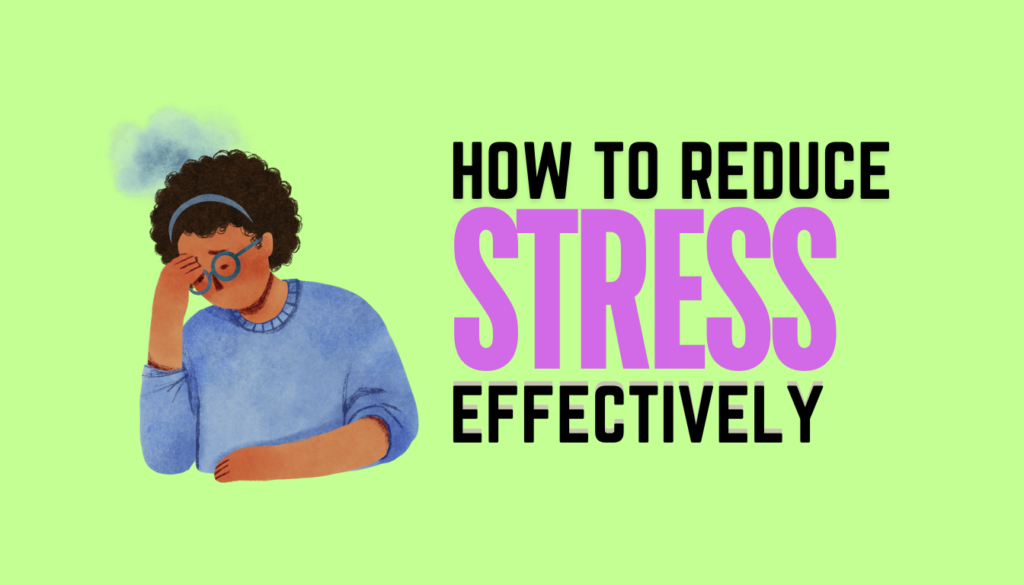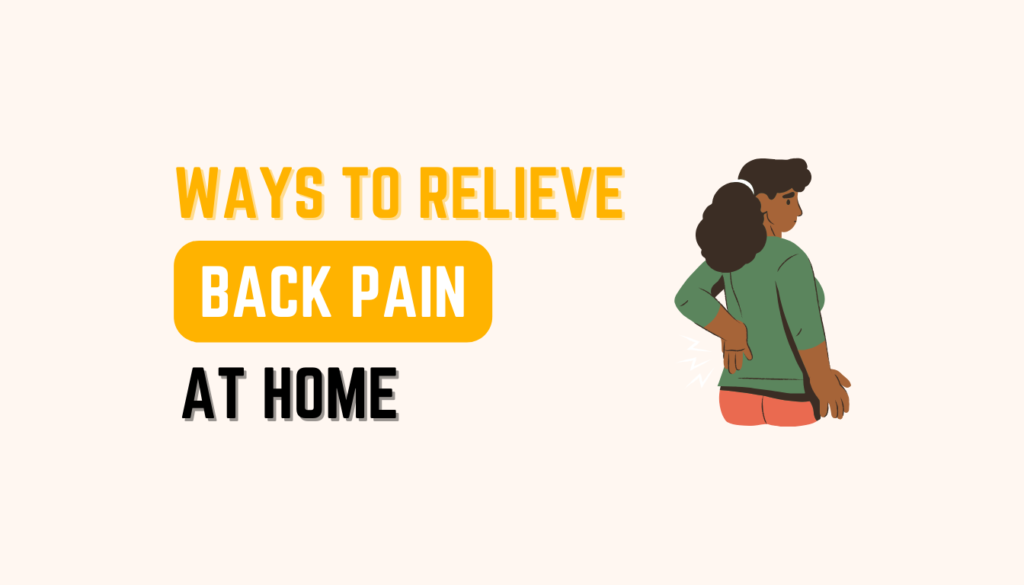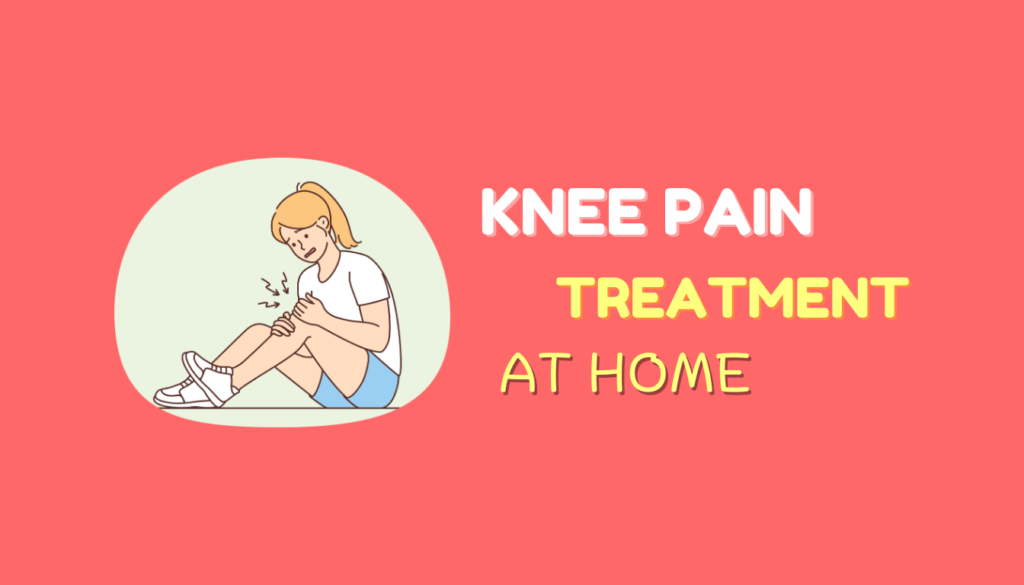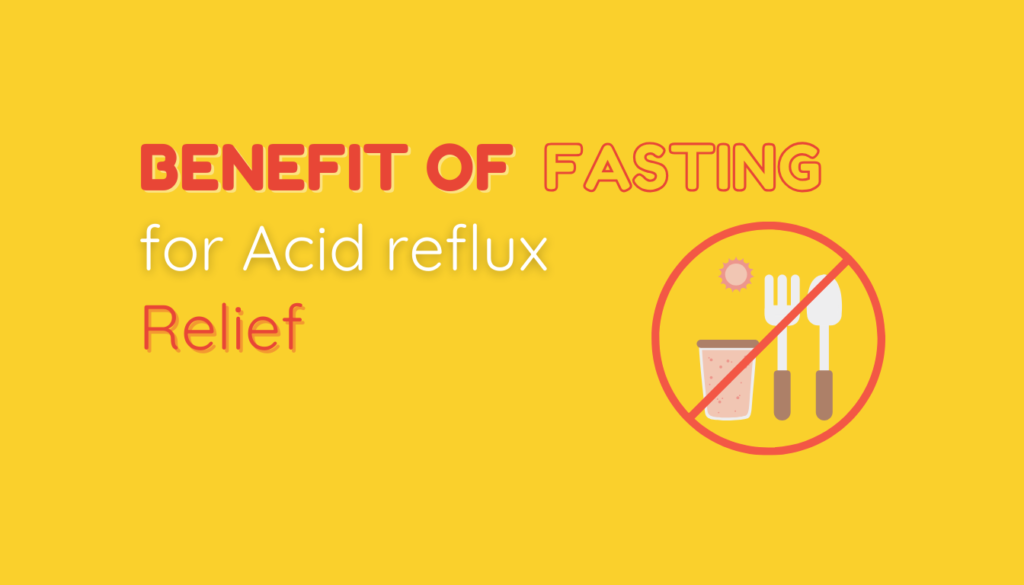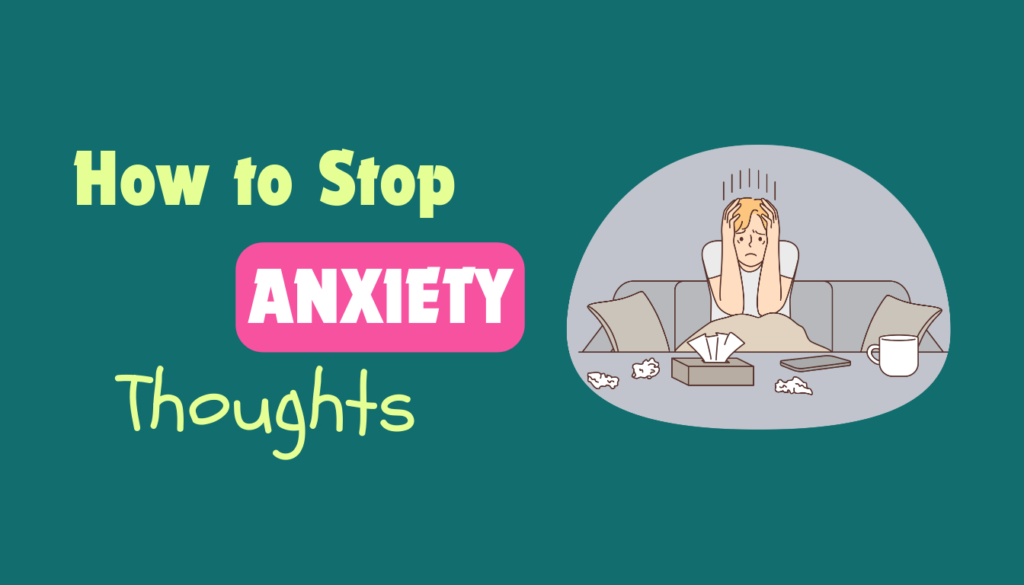Feeling overwhelmed by life’s constant demands? You’re not alone.
Stress is part of life, but it can become too much. When stress is chronic or unmanageable, it harms your well-being. But here’s the good news: there are practical, proven ways to reduce stress.
There are 7 must-try tips for handling stress and finding lasting peace. These include mindfulness, relaxation, and even lifestyle changes.
By adding these methods to your day, you can take control of stress. This leads to better health and happiness.1
No matter if it’s work, family, or daily life, these tips help you find calm and clarity.
Highly Effective Tips for Relieving Stress
Everyone finds their own way to relax. What eases your mind at home might not work at your job or in public.
It’s good to have many stress relief tools ready, so you can pick what suits your situation best.
Coloring intricate patterns and using scents in aromatherapy can lower anxiety. Certain smells change brain activity and reduce stress hormones1.
Exercise and meditation are also great for lowering stress during tough times1.
A good diet can help, too. Foods like eggs, avocado, and walnuts can keep your mood steady and your energy up1.
You might want to add vitamins and supplements like melatonin or ashwagandha for extra help1.
Doing fun things helps a lot, like hobbies or spending time with friends. Positive self-talk is also key. It can make you feel better and think more positively1.
Yoga has multiple benefits for stress, combining movement with meditation and controlled breathing. It’s good in the short and long run1.
Figuring out what’s causing your stress is important to manage it well2. Avoiding bad habits such as smoking and overdrinking helps, too2.
Feeling powerless makes stress worse2. Building up your emotional strength, focusing on the good, and staying connected with others is vital2.
Also, exercising regularly can help you stay calm when facing problems2.
Friends and family can offer support through tough work times. Taking breaks from work is crucial for stress relief2.
Setting up personal goals can boost your confidence and help you deal with stress2.
Avoiding bad habits is crucial for long-lasting stress relief2. Volunteering can make you more resilient to stress2. Prioritizing tasks helps you focus on what’s important and lowers stress2.
Thinking positive and being grateful can help reduce stress2. Accepting what you can’t change also lessens stress2. Having good sleep habits is very important for managing stress well2.
Most adults need 7 to 9 hours of sleep each night3. Moving your body can release happy hormones and make you feel better3. Meditation gives you a sense of peace and balance for your mind3.
Eating the right foods, like fruits and whole grains, is good for your health3. Laughing changes your body in a good way and reduces mental stress3.
For those really struggling, talking to a counselor is a smart move3.
Connecting with others is a simple but effective way to deal with stress3. Yoga not only relaxes your body but also calms your mind3.
Writing out your feelings in a journal can be very freeing and help your mind feel lighter3.
Telling others “no” or asking for help can decrease your stress and keep peace2 3.
1. Breathing Exercises to Calm Down Quickly
Simply concentrating on your breath or adjusting how you breathe can lower your stress level.
Breathing methods calm your mind and body fast, and they’re secret to others. No one will know you’re using them4.
The effects of many breathing exercises show within minutes.
Doing them for longer, like 10 minutes, brings greater benefits5. It’s smart to practice breathing exercises for once or twice a day.
Doing it regularly at the same time helps. As you go on, try to make your inhales and exhales last up to 10 counts5.
In progressive muscle relaxation, you tighten and then relax your muscles one by one. This helps your body and mind relax5.
You can see improvement in your breathing exercises by extending the counts for inhaling and exhaling5.
In 2020, a study found that diaphragmatic breathing was helpful for people with COPD, heart problems, or cancer6.
Another research showed that equal breathing helps older adults with high blood pressure feel better mentally. It also increases oxygen to their brains and lungs6.
Resonant or coherent breathing, which is 5 full breaths per minute, can make heart rate variability better. It also helps reduce depression symptoms, as a 2017 study discovered6.
Sitali breath works on lowering your body temperature and making you relax. You breathe in through your mouth and out through your nose6.
Bhramari, or humming bee breath, brings instant calm and soothing effects. It lowers heart rate and helps with feelings like frustration, anxiety, and anger6.
Anxiety is a common feeling that many people get.4 Its signs might be physical inaction, fast heart rate, sweating, and sleep issues4.
Breathing exercises work by changing the nervous system. They slow down heart rate, reduce blood pressure, and boost oxygen4.
- The 3-3-3 method includes breathing in for three seconds, holding for three seconds, and exhaling for three seconds4.
- The 4-2-6 way is about breathing in for four seconds, holding for two, and exhaling for six4.
- The 4-7-8 method means inhaling for four, holding for seven, and exhaling for eight seconds4.
Doing breathing exercises can help you control your breath when you’re anxious or stressed4. Anxiety may lead to shallow breathing from the body’s quick stress response4.
2. Physical Activities for Stress Management
Regular physical activity is a top way to handle stress and improve health. Exercise can quickly make you feel calmer and boost your energy.
Whether it’s a short break or a long sweat session, physical activities are great for stress relief.
Healthy adults should aim for 150 weekly minutes of moderate activity or 75 minutes of intense activity.7
Exercise boosts self-esteem, enhances mood, reduces depression and anxiety.7 Short, intense sessions, called interval training, offer the same benefits as longer activities.7
Taking a walk is a simple yet effective stress manager. Just a stroll or a longer park walk can refresh your mind.
Plus, it protects your body from stress’s harm on key systems.7 Walking helps the body handle stress better, leading to good results.7
Creating SMART goals is key to making exercise a routine for stress management.7
Working out regularly not only boosts your mood and cuts stress but also reduces anxiety and depression.8 It also keeps blood pressure in check and guards against heart disease and stroke.8
Whether you love fast walks, yoga, or intense interval training, any physical activity helps fight stress and keeps you healthy.
3. Aromatherapy and Stress Relief
Aromatherapy offers a natural way to reduce stress. Research shows certain scents can change brain waves and lower stress hormones. This makes us feel calmer, more focused, and present.9
The use of essential oils is growing fast worldwide. This shows a big interest in aromatherapy for stress management.9
For example, using lavender reduced stress and improved sleep in ICU patients. This also lowered their blood pressure and heart rate, showing its stress relief benefits.9
Many studies have looked at aromatherapy’s effects on sleep. They found it can help by reducing stress, anxiety, and depression. This benefits disorders like insomnia.9
Aromatherapy is also good for easing anxiety before procedures. Common scents include lavender, citrus, and rose.9
Aromatherapy massage might help with depression, improving mood and sleep. It could also reduce pain and improve life quality during periods.9
For stress relief, you can use a wide range of essential oils. Some examples are lavender, chamomile, and bergamot. This shows the many options to help with stress.
Not everyone can use aromatherapy. It’s not for people with asthma, allergies, or other conditions.
If you have health issues, talk to your doctor before using essential oils.9 It’s also key to use essential oils safely.
They must be diluted and stored properly to avoid harm. So, take care and get advice if needed.10
Aromatherapy is an add-on, not a replacement for medical care. It’s been used for ages to support health, but it’s not a full solution.
It can help with emotions, hormones, and stress, but you still need to see a healthcare professional for serious health issues.10
4. Creative Outlets to Reduce Stress
Being creative was probably simple in your younger years. But even if you’ve lost that touch for art, you can easily find it again.11
Studies show that making music or doing visual arts can lower stress and anxiety.11 These activities also help people dealing with depression and anxiety.
They do this by letting you relax and express yourself in new ways.11
Dance and painting, for instance, can release your emotions, bringing deep relief.11
Writing, like keeping a journal, helps with depression by clearing your mind of overwhelming thoughts.11
Painting and drawing can also calm depression and anxiety, putting you in a meditative state.11
Doing crafts helps you focus, drawing your mind away from negative thoughts. It creates something you can be proud of, boosting your self-esteem.11
Learning to play an instrument gives you a structured routine and a way to release emotions. It’s beneficial if you’re dealing with depression.11
Dance mixes emotion and physical activity, releasing feel-good endorphins. It’s a fun way to fight off depression.11
Cooking helps improve your mood through creativity and being in the moment. It makes you feel cared for and nourished.11
Gardening brings satisfaction and peace. It represents growth and healing in a very real way.
Photography changes your focus from inner to outer beauty. It teaches you to see the beauty around you.11
Theater gives you a chance to try on different roles, helping you understand others and express yourself.11 Making models is calming, offering a break from stress. It’s a relaxing activity.
Active creative activities like dancing and gardening transform your body physically for the better.12
Music and singing can reduce inflammation and strengthen your immune system. It’s especially helpful for those with chronic pain or heart problems.12
Creative arts, like dancing, improve your mood over time. They teach you skills and boost your self-esteem.12
Working with others on creative projects fights depression and loneliness. It’s good for your mental health.12 It also gives you a sense of control and purpose, which lowers stress and anxiety.
Painting and drawing help with hand-eye coordination and make your brain work better. They improve your motor skills.12
Trying many creative activities makes both sides of your brain work together. This makes you smarter and improves your thinking skills.
Being creative gets your brain buzzing with positive feelings. It reduces stress hormones.13 Art therapy mixes art with therapy to fight off depression and anxiety. It’s been proven to work.13
Being in a creative flow state can offer relief from sad thoughts.13 Ignoring your emotions can hurt your physical and mental health, leading to problems like insomnia and heart diseases.13
Having a creative hobby, like sketching, dancing, or writing, is about the journey of expressing yourself.
This is more important than the end result.13 Discovering your creative side can make you understand your emotions better. It helps you stay emotionally healthy.
5. Lifestyle Changes for Long-Term Stress Management
Quick stress-relief is great, but it’s better to build a life that handles stress well for a long time.
Studies in the Acta Psychiatrica Scandinavica journal show how managing your lifestyle can help with depression.14
The Canadian Journal of Psychiatry states that changing how you eat, exercise, and manage stress can be good for treating major depression in adults as well.14
BMC Psychiatry says lifestyle medicine is key in dealing with depression.14 Use these methods every day to lessen stress and be happier and healthier.
Being active regularly is key to dealing with stress. Try to exercise for at least 30 minutes. This can make you feel better and less stressed.14
Those who work out more sleep better, improve their sleep quality, and cope with stress better.15 Exercise makes the body release feel-good hormones, thus reducing anxiety and making you feel more positive.15
Having a good sleep plan is vital for stress management. Try to go to bed and wake up at the same times daily.
This routine can boost your mental health.14 Also, stop using electronics before bed to sleep better.15
A healthy diet is also crucial for mental well-being. Focus on fresh foods, lean proteins, and colorful fruits and veggies.
Avoid too much caffeine, sugar, and processed foods to help manage stress and depression.14
Activities like journaling, meditation, and spending time with friends can help you with stress over time.
Write in a diary to understand what stresses you and how to cope better.14 Practices like yoga and meditation can reduce anxiety, help you relax, and improve mood and sleep.15
Talking to friends can calm you down and make you feel less stressed.15
Being positive and adjusting how you view tough situations is a superpower against stress.
Look at the good in life and set realistic expectations when stress hits. This can make you more optimistic.14
Talking positively to yourself can make you live longer, be less depressed, and deal better with hard times.15
Try these lifestyle changes to manage stress for the long haul and feel better. Find what works for you and keep at it every day.
6. How to Reduce Stress with Yoga
Yoga is more than just exercise. It blends movement, meditation, and controlled breathing. This mix is great for easing stress.16
Doing yoga is a good stress-buster. It keeps your body fit and your mood positive.16
It helps by stretching tight spots like hips and shoulders. Yoga’s breath work makes you focus on your breathing. This helps calm your mind.16
Every yoga session includes the savasana pose for extra relaxation and rejuvenation.16 For a deep breath and reach it, there’s Yoga Nidra. It really helps lower stress.16
One yoga session can give instant stress relief. Doing it often brings even more benefits.17
Over time, yoga changes how our body deals with stress. It affects hormones, heart rate, and the brain.17
Regular yoga can improve how your brain handles stress. It may even boost your memory and learning.17
Many yoga types exist, from Kundalini to Vinyasa. It’s good to try a few to see what fits you best.17 For those with health issues, finding specific yoga classes or asking a doctor is a smart move.17
Yoga is good for many health problems.18 People with multiple sclerosis sleep better after doing yoga.18 Adults with asthma find breathing exercises from yoga very helpful.18
It can even help your heart and lower diabetes risk. A study shows yoga is good for treating hand arthritis.18
For mental health, yoga is powerful. It helps with depression and anxiety, particularly in women.18 Walking and yoga both lift your mood and lower anxiety.18
For those with multiple sclerosis, yoga is recommended along with other exercises to help manage the disease.18
7. The Power of Gratitude in Stress Reduction
Gratitude means seeing and valuing the good in life. It’s a strong way to lower stress and feel better.
Studying this has shown us that being thankful makes people less stressed, less anxious, and less likely to feel down.19
A study found that saying thanks can lower the stress hormone, cortisol, by 23%. This helps fight off stress-related health problems.19
In China, a study on people taking care of those with dementia found that being grateful made them less upset.19
Also, a study on students in Korea in 2019 showed that being thankful made them less worried about finding a job.
It also made them feel more satisfied with life, better in their mind, and happier as a whole.19
The COVID-19 outbreak has really affected people’s mental health. Studies in the U.S. have shown that in the beginning, many felt more stressed out.20
A global review on the virus’s mental effects found more depression and anxiety across the board.20 But, we’re starting to see that things might be getting a bit better.
Yet, for some, the stress will continue because the pandemic has really changed how life works.20
Practices that make us be more thankful have been shown to help a lot. They can lower the chances of feeling down and anxious.
They can also make us feel better emotionally, have stronger friendships, and even be healthier.20 This has been true for big stressors like dealing with bad health or the pandemic.20
Many studies during the pandemic also found that being thankful can make us less stressed and in a better mood.21
Thinking about what we’re thankful for at the end of each day can help us sleep better.21 It’s been found that wanting too much stuff can actually make us less happy.
This shows us how important it is to focus on being grateful for things like health, being with family, and the little things that bring us joy.21
Adding thankful moments to your daily life can change a lot. You can get better at handling stress and be happier and healthier overall.
Conclusion
We looked at many ways to help us reduce stress. There are quick methods like deep breathing and meditation.
Then, there are changes we can make long-term, like regular exercise and a healthy diet. Luckily, we have lots of choices to help us feel better.22
Dealing with stress from work, school, or big life events can be tough. Stress management techniques can offer peace and focus.
Adding mindfulness, relaxation exercises, and other healthy coping strategies to our days is key. These can help us handle tough times and boost our happiness.22
Everyone’s path to stress relief is different. We should try different stress-busting ways and self-care. This helps us find what really works for each of us.
Being patient and sticking with what helps will lead to a life where we do well, no matter the challenge we face.22 23
Source Links
- https://www.verywellmind.com/tips-to-reduce-stress-3145195
- https://www.nhs.uk/mental-health/self-help/guides-tools-and-activities/tips-to-reduce-stress/
- https://www.mayoclinic.org/healthy-lifestyle/stress-management/in-depth/stress-relievers/art-20047257
- https://www.calm.com/blog/breathing-exercises-for-anxiety
- https://www.webmd.com/balance/stress-management/stress-relief-breathing-techniques
- https://www.healthline.com/health/breathing-exercise
- https://www.mayoclinic.org/healthy-lifestyle/stress-management/in-depth/exercise-and-stress/art-20044469
- https://www.heart.org/en/healthy-living/healthy-lifestyle/stress-management/working-out-to-relieve-stress
- https://health.clevelandclinic.org/stressed-out-aromatherapy-can-help-you-to-feel-calmer
- https://www.verywellmind.com/aromatherapy-scents-for-stress-relief-3144599
- https://mindfulhealthsolutions.com/find-your-escape-10-creative-outlets-for-easing-depression
- https://www.memorialcare.org/blog/7-ways-creativity-boosts-your-mental-and-physical-health
- https://jennarainey.com/healing-through-expression-the-therapeutic-power-of-creative-outlets
- https://depressioncenter.org/outreach-education/community-education/depression-toolkit/want-stay-mentally-healthy/lifestyle
- https://www.webmd.com/balance/stress-management/stress-management
- https://www.verywellmind.com/how-yoga-can-help-reduce-stress-3567211
- https://longevity.stanford.edu/lifestyle/2023/10/03/how-yoga-affects-the-brain-and-body-to-reduce-stress/
- https://www.ncbi.nlm.nih.gov/pmc/articles/PMC5843960/
- https://www.psychologytoday.com/us/blog/comfort-gratitude/202007/gratitude-helps-minimize-feelings-stress
- https://www.ncbi.nlm.nih.gov/pmc/articles/PMC8867461/
- https://www.cnn.com/2023/03/11/health/daily-gratitude-practices-wellness/index.html
- https://www.uakron.edu/armyrotc/MS1/14.pdf
- https://www.pfizer.com/news/articles/chronic_stress_and_how_to_manage_it

